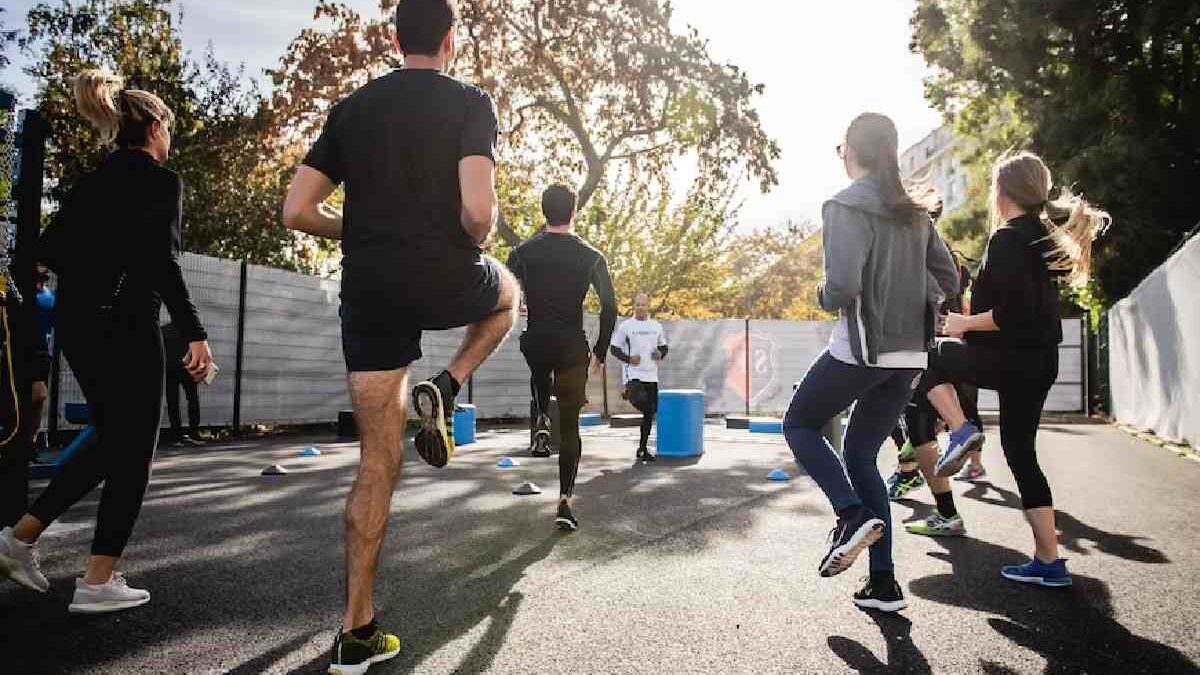How often should I do physical activity according to my age? – The World Health Organization (WHO) recently adjusted the amount of physical activity people should do. And it is that, during the Covid-19 pandemic, the sport has taken on even greater importance than it had.
Exercise can help prevent heart disease, type 2 diabetes, and cancer and prevent around five million deaths a year worldwide. For this reason, the WHO published a new physical activity guide in which it is recommended to do five hours of exercise a week.
This document is divided into categories for the different stages of life and some more specific cases, such as pregnant or postpartum women, patients with chronic ailments and people with disabilities.
Youth (5 to 17 years)
For children and young people between the ages of 5 and 17, the physical activity recommended by the WHO is:
- Games
- Sports
- displacements
- Recreational activities
- Physical education or scheduled exercises
The above, in family contexts, school or activities with friends. With this, young people can improve their cardiorespiratory, muscular and bone health functions.
For this, it is recommended that:
- Children and young people between the ages of 5 and 17 do at least 60 minutes of moderate to energetic intensity physical activity a day
- If they do more than 60 minutes a day, it will only bring benefits
- The chosen exercise should be primarily aerobic
Adults (18 to 64 years)
On the other hand, the recommendation for adults between 18 and 64 is recreational and travel activities, such as biking or walking.
In this context, it is recommended:
- A minimum of 150 notes of moderate-intensity aerobic physical activity per week or 75 letters of vigorous-intensity aerobic physical exercise each week May also be an equivalent combination of moderate and vigorous activities
- Practice aerobic exercise in sessions that last at least 10 minutes
- To get more benefits from sport, it is recommended that you increase physical activity up to 300 minutes a week when it is moderate and 150 minutes a week when it is moderate aerobic or a combination of them.
- Perform muscle-building exercises at least twice a week
Older adults (65 years and older)
When it comes to people aged 65 and over, the WHO recommends recreational, occupational activities if you still carry out work activities and domestic tasks, games, sports or programmed exercises in the context of your daily activities.
So the recommendation is:
- 150 minutes per week of reasonable aerobic physical activity, 75 minutes of some vigorous exercise, or an equivalent combination of both
- That the activities are carried out in sessions of at least 10 minutes
- Remember that, to improve the benefits of exercise for health, older adults can dedicate up to 300 notes per week of moderate aerobic activity or 150 minutes if it is vigorous.
- Older adults with reduced mobility should perform physical activity similarly to improve their balance and prevent falls three or more times a week.
- Strength training activities for this age group are recommended twice a week.
- If the older adult cannot carry out the physical activity recommended by their state of health, they should remain active to the extent that their state allows it.
Pregnant and postpartum women
It is no secret that activity during and after pregnancy has many benefits, both for the mother and the child. This reduces the risk of diseases such as:
- Gestational diabetes
- childbirth complications
- Postpartum depression
According to the WHO guide, if the pregnant woman does not have conditions or complications related to her illness, she should do at least 150 actions of reasonable aerobic and strengthening activities per week.
Likewise, pregnant women should stay hydrated and avoid physical risk activities, in addition to being attentive to all warning signs that indicate stopping exercise, such as: feeling dizzy, painful contractions or vaginal bleeding.
People with chronic illnesses
According to the WHO report, people with chronic diseases can also see the benefits of regular exercise. For this reason, the recommendation for this type of patient is to practice at least 150 to 300 minutes of moderate aerobic exercise per week or between 75 and 15 minutes per week when it comes to vigorous aerobic activity. Also, doing strength and balance exercises a couple of times a week will help improve your ability and prevent falls.
People with disabilities
When it comes to children with physical or intellectual disabilities, the guidelines for children without disabilities apply, that is, games, sports, and travel, among others. These activities may significantly benefit children with conditions that impair their cognitive function, such as attention-deficit/hyperactivity disorder.
When they are adults with disabilities, physical activity will improve their physical and cognitive function, strength and quality of life. In these cases, the WHO indicates applying the same recommendations to adults. As with previous guidelines, this WHO document seeks to promote exercise and stop a sedentary lifestyle.
Train with German Sport
If you want to follow the WHO sports recommendations in the hands of an expert, don’t forget that you can enjoy the benefits of the athletic track and sports field of the German Clinic Training Center.
Thus, on a 200-square-meter track with four levels and a 35×45-meter multipurpose field, you will be able to carry out all the training sessions for Alemana Sport and the sports reimbursement work for patients.
Remember that the Ministry of Health and the Ministry of Sport allow the operation of the centre to train outdoors in phases two and three of the Step by Step Plan, and we have all the protocols so that you can prepare safely, among which are:
- Temperature taking of those who enter
- Hygiene of materials for each training
- Use of personal implements for each athlete
In this way, you will be able to develop high-quality workouts, complete recovery processes and optimize your sports performance.

